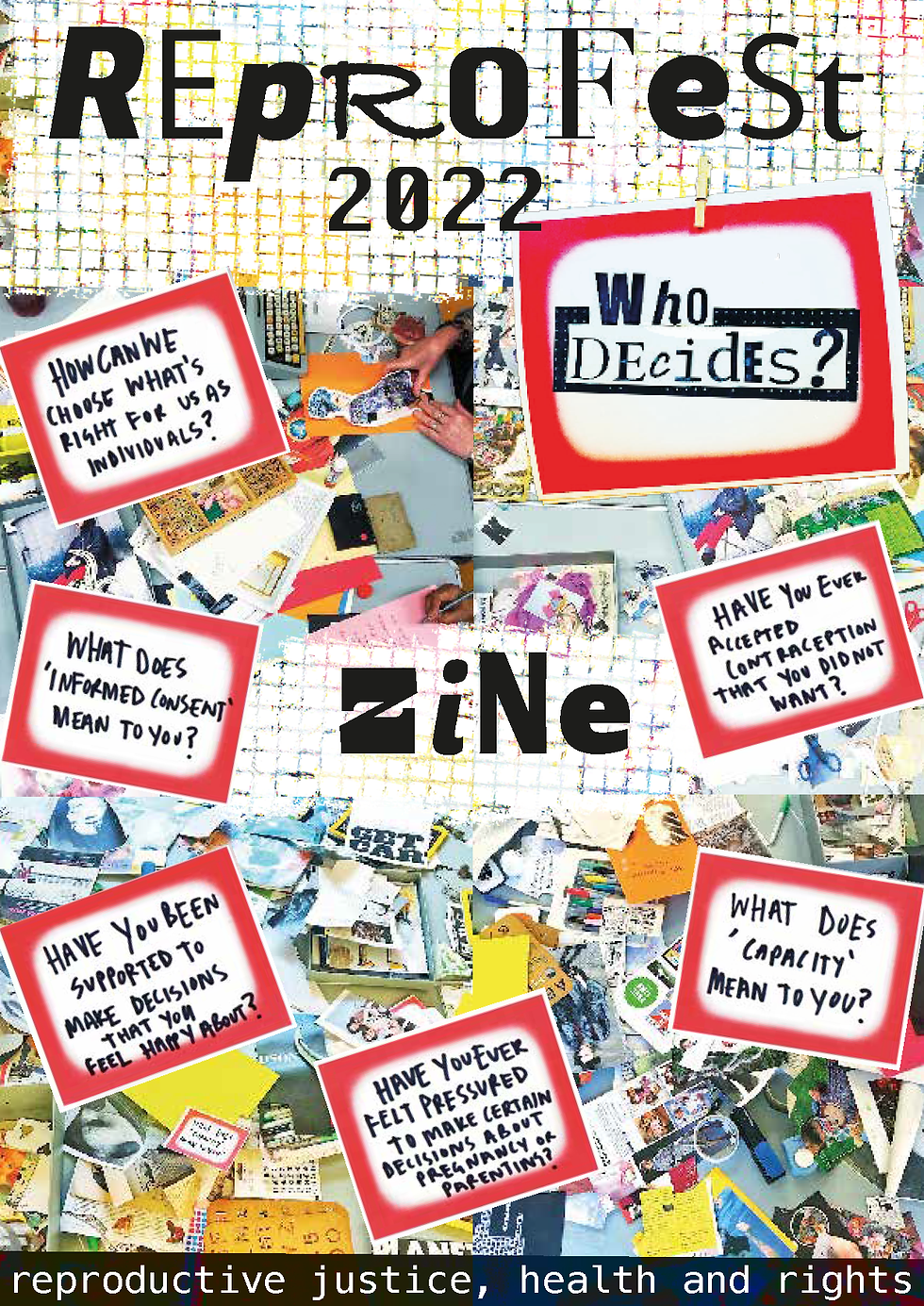Wearing Many Hats, Holding One Mission: Becoming the Voice I Never Heard in Sexual Health and Psychosexual Therapy.
- repronorth
- Jul 3, 2025
- 4 min read
A journey into advocacy, therapy, and justice — where personal experience became a professional calling to serve, heal, and empower
Hi, my name is Chantelle Walker, and I proudly wear multiple hats that shape who I am personally and professionally. Primarily, I am a Melanated Northerner of British Caribbean descent, a woman, and a mother to three amazing humans. Professionally, I am a Psychosexual and Relationship Therapist based in Salford, Greater Manchester (GM) Psychology Today profile. Beyond therapy, I take on the role as a Sexual Health Lead at a charity, leading a project aimed at addressing the disproportionate rates of Sexually Transmitted Infections (STIs) amongst Black African and Caribbean communities (research informing project). Additionally, I am a researcher currently focusing on the experiences of sex among men who identify as part of the Black African diaspora.
My inspiration for my work is an accumulation of lived experiences, observations, and a deep sense of responsibility shaped by where I come from and the spaces I now occupy. Growing up, conversations centred around intimacy and sexual and relational wellbeing were absent within my family and, in fact, my wider community. This was no surprise since the elders within my wider community were not well-informed by their parents when they were growing up (Gabbidion and Shaw-Ridley, 2018). It was not until my placement during my BA (Hons) Youth & Community Work that I encountered two Black Caribbean youth and community workers who completely changed my perspective. Witnessing the ability of people whom I resonate with to speak about sex and sexual well-being with confidence, style, and authenticity – creating a space that was open, shame-free, and safe was a pivotal moment for me. It sparked my passion for sexual well-being and cemented my commitment to ensuring these conversations are accessible, empowering, and inclusive.
As I began my journey as a therapist, I could not help but notice that my community was missing from psychosexual and relationship services. I did not see people who looked like me in the therapy room nor the teaching spaces. Our stories were not reflected in training, supervision, or wider professional discourse. It was as though our experiences did not exist in these fields. This gap became impossible to ignore. Why were individuals who identify as Black missing from these spaces designed for healing, growth, and open conversation? What are the barriers that are keeping us out?
These questions, along with my work as a Sexual Health Lead, fuelled my determination to create spaces where my community’s voices are heard, experiences are validated, and relationships and sexual well-being are prioritised. This drive became the foundation of my academic research.
Being situated in the North of England, a region with significant health inequities, made this even more urgent (Pickett, Taylor-Robinson et al, 2021). Through my work, I have seen how Black men are often positioned at the margins of sexual health conversations—either reduced to statistics around STIs and "risk" or excluded altogether (Serrant-Green, 2003). Yet, their perspectives on sex, relationships, and emotional well-being remain largely unexplored in both psychosexual therapeutic and academic spaces (Nwaosu, 2023). Their stories—often overlooked or flattened by stereotypes—are complex, nuanced, and deeply shaped by experiences of migration, identity, masculinity, and societal pressures. My research is not just about collecting data; it is about amplifying the voices of men who identify as part of the Black African diaspora in conversations about sexual wellbeing. These discussions must be informed by their lived realities, not just external assumptions. Top of Form
Bottom of Form
By understanding their perspectives, we can challenge harmful narratives, improve culturally attuned care, and ensure that sexual well-being and relationship discourse is truly inclusive. It is about making psychosexual therapy and reproductive health spaces reflect the diversity and richness of the communities they serve.
Ultimately, this work is personal. It starts with who I am, where I am from, and the people I care about. And it is driven by the belief that healing and justice should be available to everyone—not just those who have historically had access to it. It is not just about access but also about agency, mental health, and empowerment!
If you resonate with my work or are interested in collaborating to further explore these important conversations, I would love to hear from you.
Feel free to reach out to me at ckwalker21@proton.me.
About the author, Chantelle...

A Manchester native and proud mother of three beautiful children, Chantelle has a BA (Hons) in Youth and Community Work and is currently pursuing an MSc in Psychosexual and Relationship Therapy, accredited by COSRT. With experience in detached youth work in low-affluent localities in Greater Manchester, Chantelle has also developed expertise in addressing various sexual dysfunctions and relationship challenges.
Her experience extends to Anti-Trafficking Victim Support work across the North-West and West Midlands with Black African young people, as well as Community Engagement and Development work with non-white British populati
ons. As the Sexual Health Lead at BHA For Equality (within the PaSH Partnership), Chantelle spearheaded the innovative Sexation project. This initiative, spanning three boroughs in Greater Manchester, aims to combat STI disparities among Black African and Caribbean communities through collaborative efforts with creative professionals and other support and advocacy organisations.
Outside of her professional pursuits, Chantelle finds joy in yoga, orature, the arts, reading, and nature. She is deeply committed to promoting sexual wellbeing and challenging inequities faced by Black African and Caribbean communities, driven by her passion for social justice.


